Twaddell: Agreement reached over long-running parade dispute
- Published
An agreement has been reached over the long-running parade dispute in north Belfast
The first and deputy first ministers have welcomed a breakthrough in a long-running parade dispute in north Belfast.
The Twaddell Avenue protest has been ongoing since July 2013.
On Friday night, talks facilitators the Rev Harold Good and Jim Roddy released a statement saying a resolution had been found.
Over the weekend, they confirmed that the loyalist protest camp will be dismantled next Saturday, 1 October.
The cessation of the protest will follow the completion of the outstanding Ligoniel Lodges' return parade at 08:30 BST on Saturday.
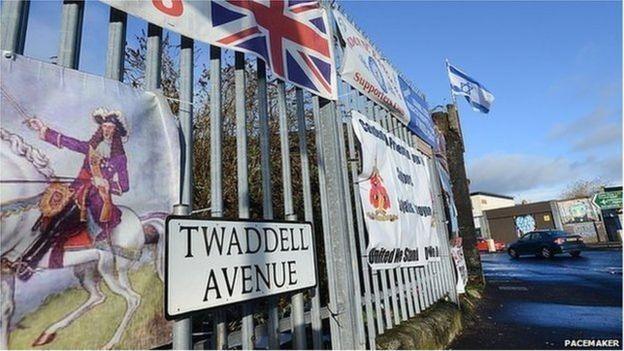
The loyalist protest at Twaddell Avenue has been ongoing since July 2013
The statement said that following the completion of this parade, the Ligoniel Lodges will "instigate a voluntary moratorium on applying for a [future] return parade.
"This moratorium would allow for a process between the lodges and [nationalist residents group] CARA to seek agreement on future return parades and if agreement is achieved, the moratorium would be lifted," said the statement.
First Minister Arlene Foster called it "a significant step".
Deputy First Minister Martin McGuinness commended the two facilitators.
The dispute - which has cost an estimated £20m to police over the past three years - began after a Parades Commission determination not to allow the return leg to pass a section of the Crumlin Road in 2013.
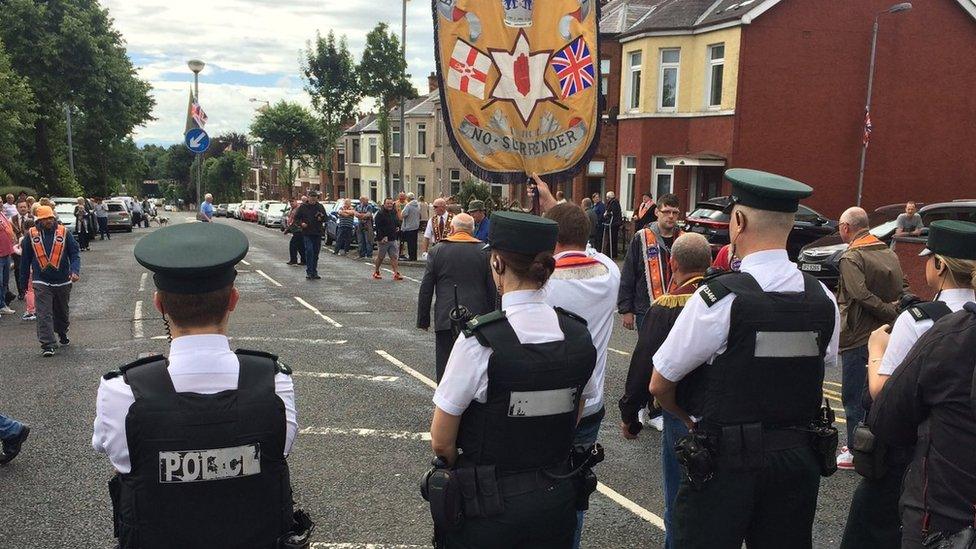
The Ardoyne parade dispute has been ongoing since 2013
Discussions aimed at resolving the disagreement between the Orange Order and Cara have ended in failure in the past.
In June, a proposed deal to end the dispute collapsed.
However, the statement issued on Friday night said: "We are pleased to announce that a local agreement has been reached to bring an end to the difficulties surrounding parades and protests in the Twaddell/Crumlin Road area.
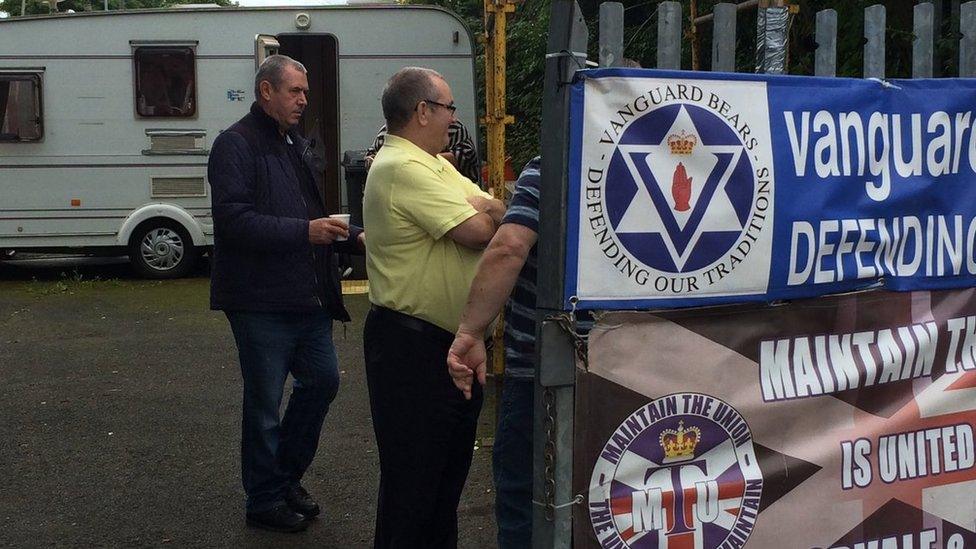
The protest camp at Twaddell
"The agreement has the full support of the three lodges and the Crumlin Ardoyne Residents Association."
CARA spokesperson Joe Marley said the residents group "has always been of the view that inclusive and meaningful dialogue was the way to achieve a resolution" to the issue.
He added: "For some months now we have engaged in a process with the local Orange lodges and a number of proposals came from those discussions which we felt could bring a resolution.
"On the back of those discussions, we have committed to ending protests at existing morning parades in return for a moratorium on return parades following a parade on Saturday.
"We have also agreed to participate in a community forum."
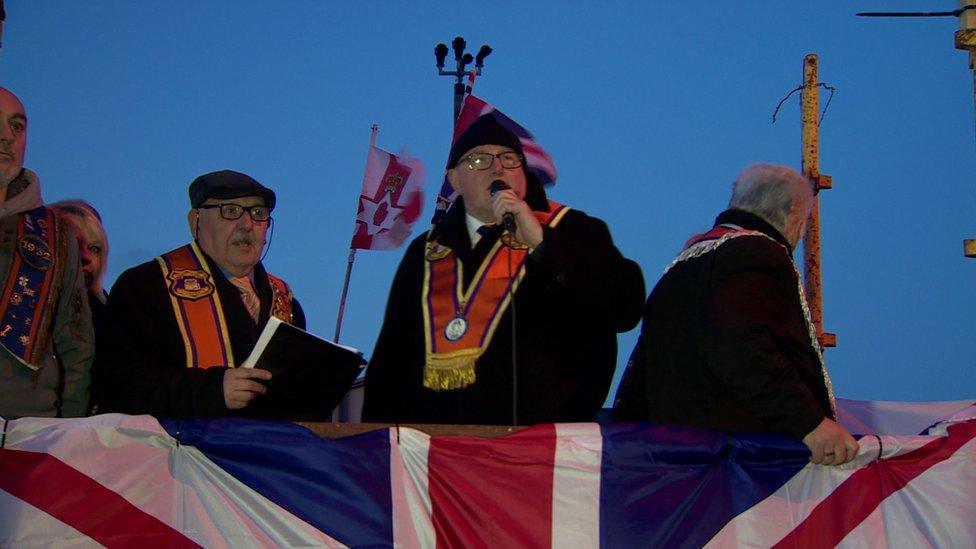
Discussions aimed at ending the dispute have previously ended in failure
But another nationalist residents group, the Greater Ardoyne Residents Collective (Garc), has made it clear that it is opposed to the deal.
The group's Dee Fennell said: "In our opinion, this goes against the wishes of the vast majority of people living in Ardoyne, Mountainview and the Dales."
A Belfast priest involved in negotiations for the deal said it marks a "radical change in mindset".
Father Gary Donegan said the intensive negotiations had been going on quietly: "People have had to reconsider drawing lines in the sand. They've had to rub the lines away and make major compromise and that's welcomed by the vast majority, although there are some who have had difficulty with it."
Politicians and police have reacted warmly to news of the breakthrough.
First Minister and DUP leader Arlene Foster said the agreement was "a welcome development" and "a significant step".
"I said at the start of the summer that we all have a responsibility to show leadership and to continue to seek resolutions to contentious issues through discussion and to ensure any difficulties are identified and resolved peacefully. By doing so, we become stronger as a community and a country," she said.
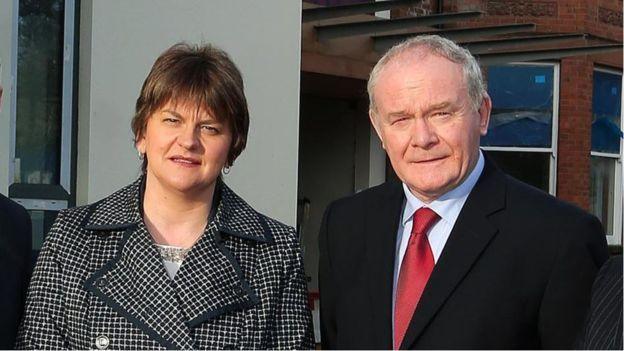
Northern Ireland leaders Arlene Foster and Martin McGuinness welcomed the news
"I thank all those involved. We want to build a future that is respectful, inclusive and vibrant."
Deputy First Minister Martin McGuinness said: "I commend Reverend Harold Good and Jim Roddy who have worked positively and considerately with everyone in the local community to reach this agreement.
"We must resolve disagreements regarding parades, identity, culture and tradition through dialogue, so that difference is celebrated and respected.
"The next phase of our political and peace processes must be the development of a real reconciliation process.
"As leaders we will work with Executive colleagues to ensure tolerance, equality and mutual respect are key tenets of our new shared future."
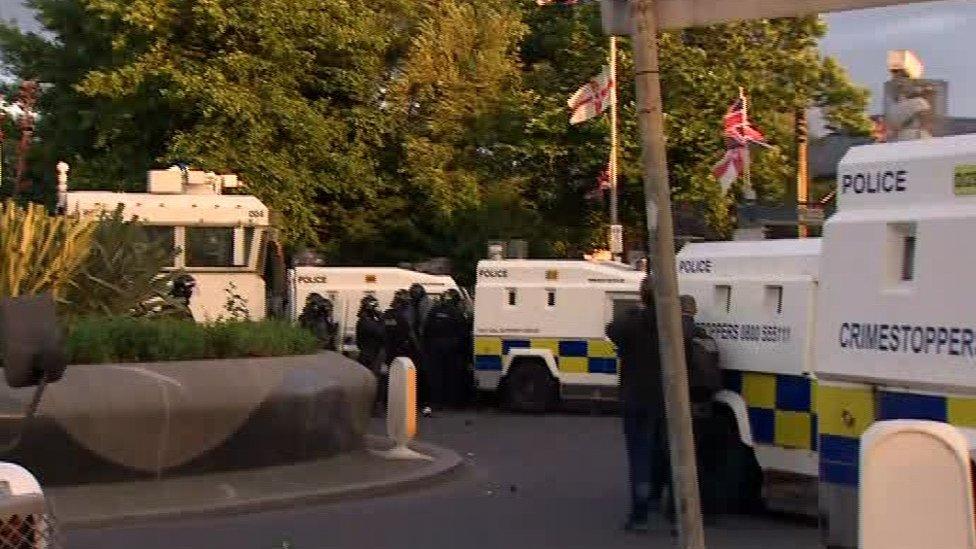
The cost of policing the protest at Twaddell Avenue has been estimated to be in the region of £300,000 per week
Northern Ireland Secretary James Brokenshire also welcomed the news.
"I commend the representatives of the Orange Order and Cara for their efforts in negotiating a solution.
"This is a clear demonstration that local dialogue can work, and offers up the best chance of resolving disputes like this."
Northern Ireland Justice Minister Claire Sugden paid tribute to those involved in brokering the agreement.
"I look forward to seeing this new agreement implemented and an end to the protest," she said.
The Republic of Ireland's minister for foreign affairs, Charlie Flanagan, praised the "spirit of cooperation and mutual respect" that brought about agreement.
- Published24 September 2016
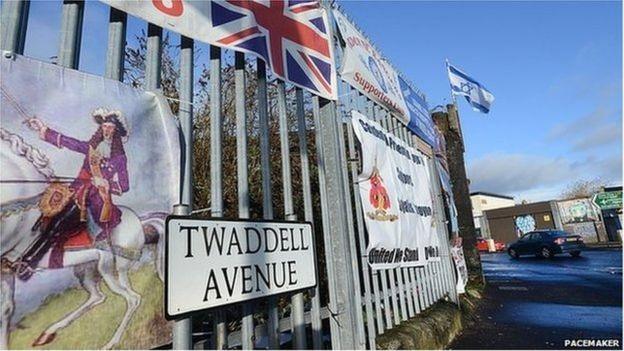
- Published28 June 2016
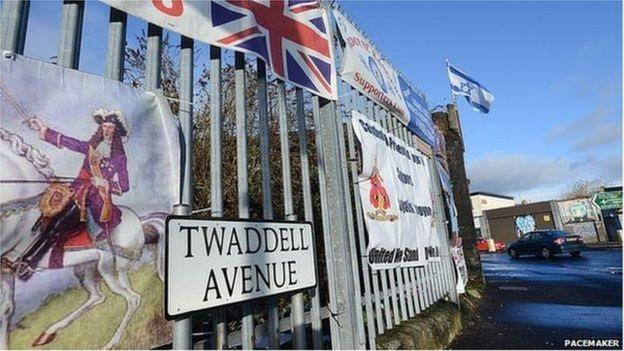
- Published28 June 2016
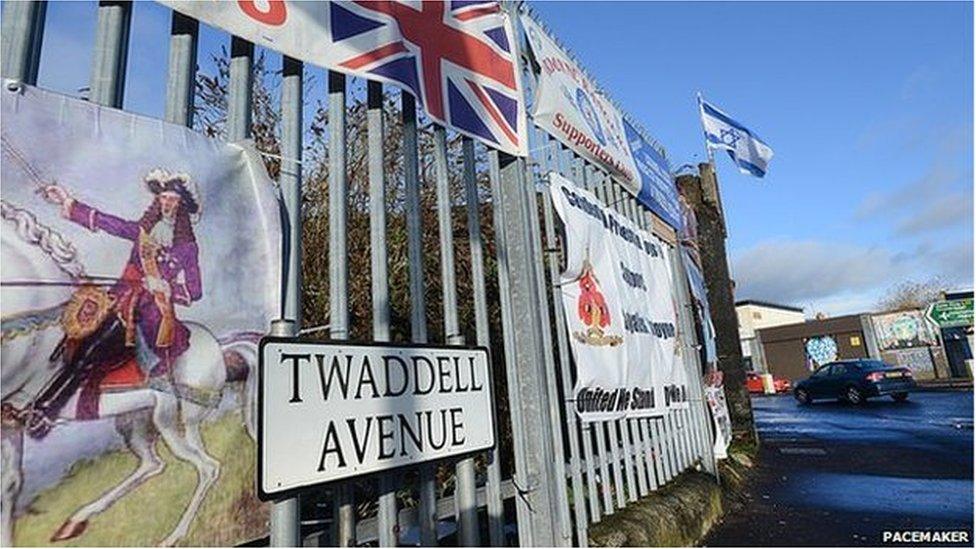
- Published7 April 2016
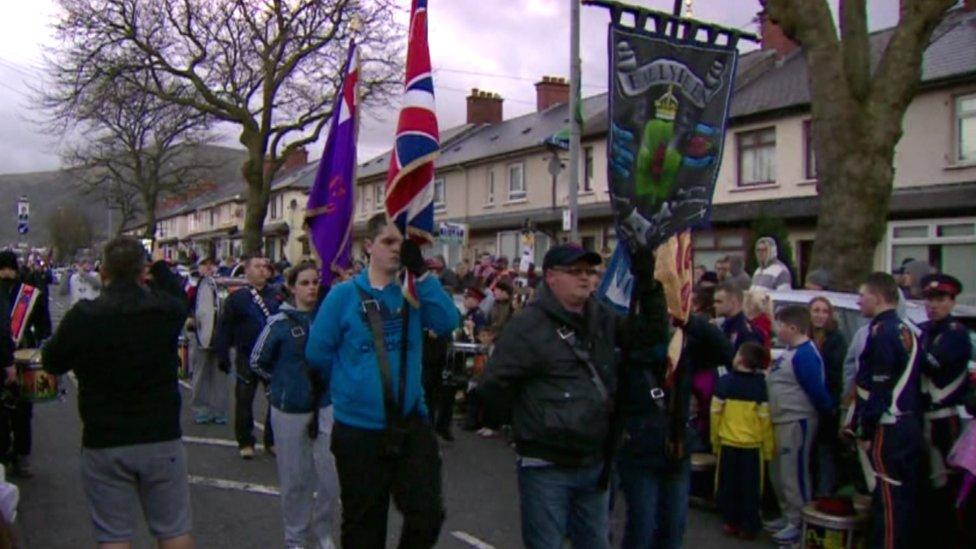
- Published11 December 2013